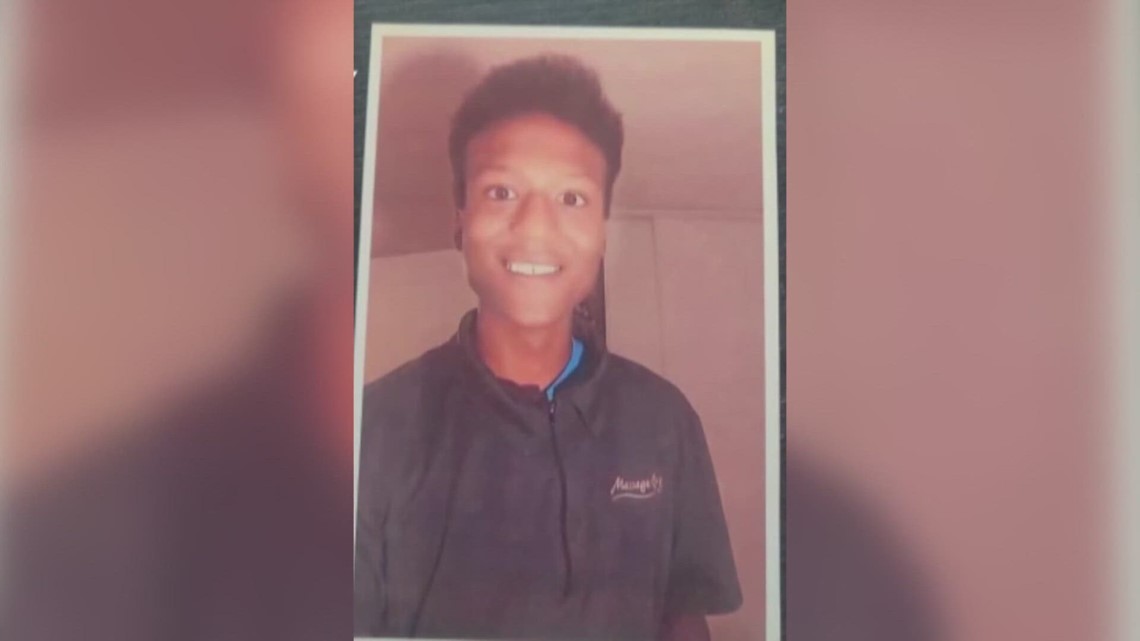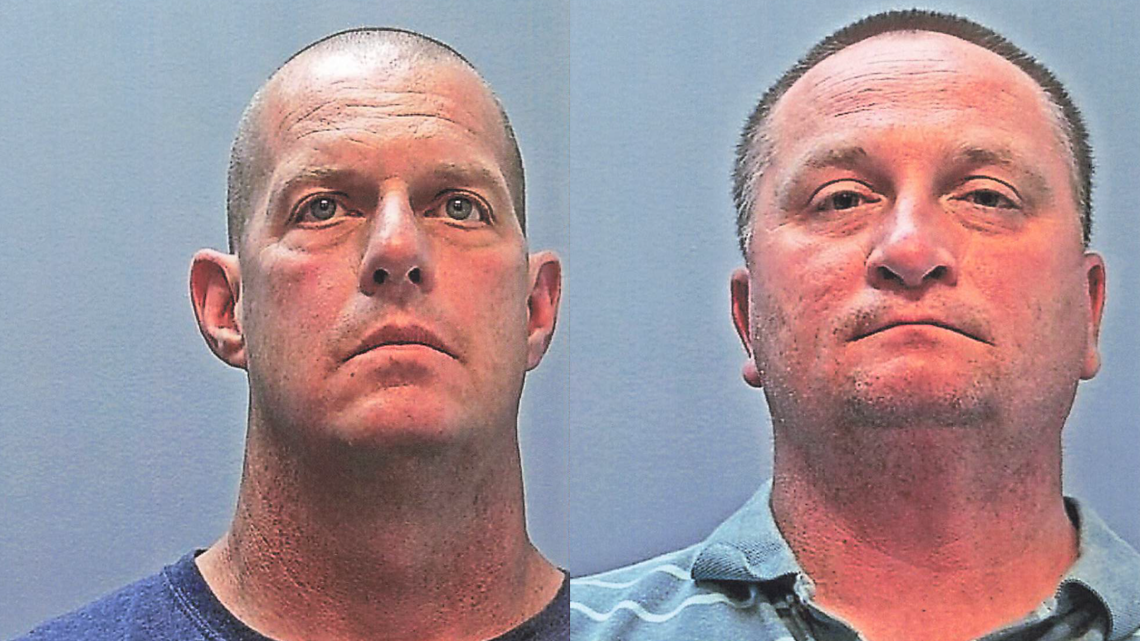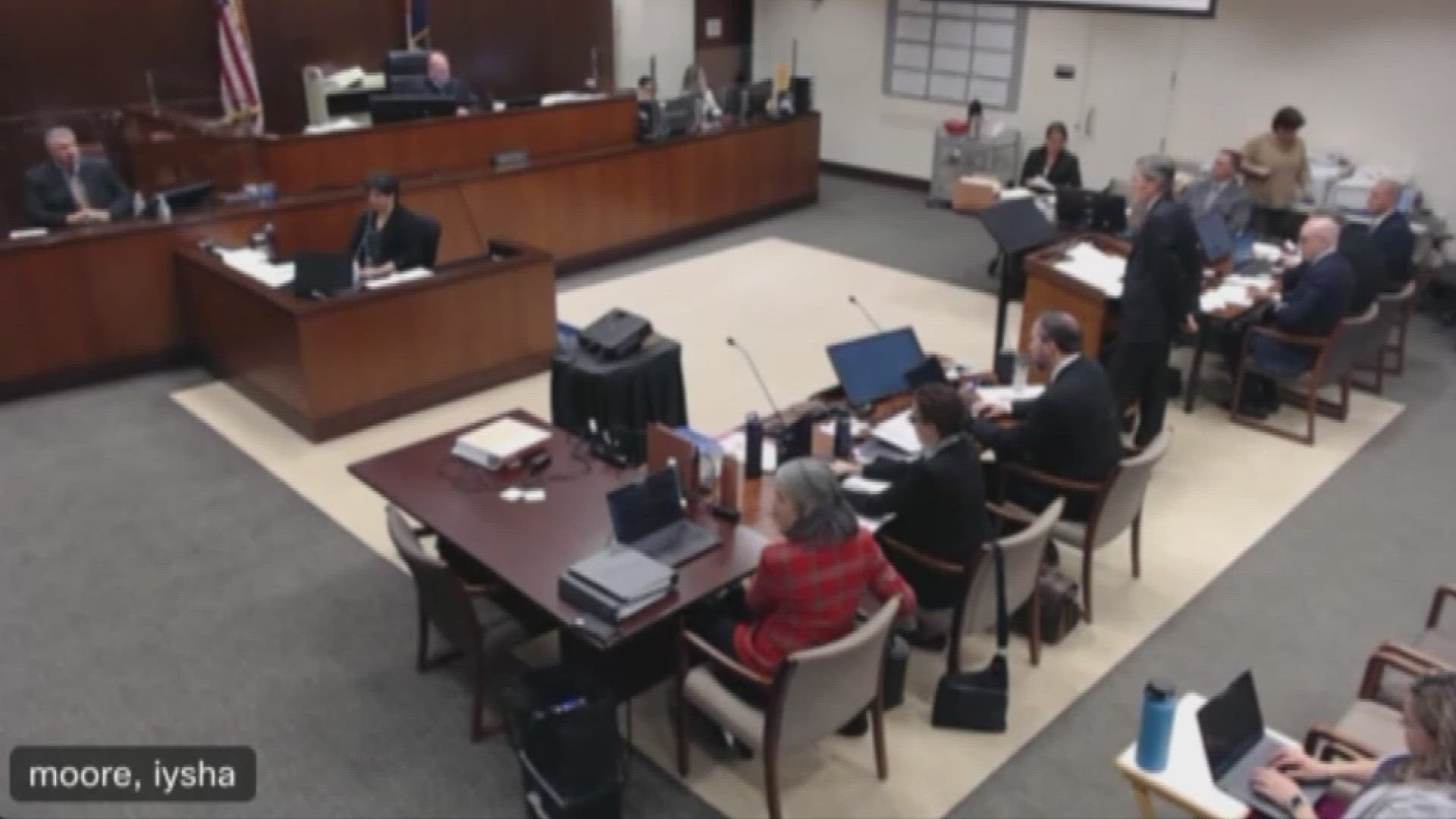AURORA, Colo. — A cardiologist took the witness stand Friday and told jurors in the trial for two paramedics charged in Elijah McClain's death that he believed a narrowed artery in his heart contributed to his 2019 death.
Jeremy Cooper and Peter Cichuniec are each charged with reckless manslaughter and assault for McClain's death.
Three Aurora officers first contacted McClain on Aug. 24, 2019, after a 911 caller reported a "suspicious" man who was wearing a ski mask. Within seconds of being contacted, McClain was forcibly taken to the ground and placed in a carotid neck hold which caused him to lose consciousness. He was then handcuffed and restrained on the ground.
That same night, while McClain was still restrained, paramedics injected him with ketamine. His heart stopped and he later died.


Dr. Sri Sundaram spoke to jurors on Friday about a narrowed coronary artery that McClain had. The anomaly was documented in the original autopsy done by the Adams County coroner's office. It listed the "narrow left coronary artery" as a contributing factor. However, an amended autopsy report was completed by Dr. Stephen Cina. In it, he wrote that after reviewing additional materials including body-worn camera footage, and looking at McClain's history as a distance runner, he did not believe the small artery contributed to his death.
Sundaram told jurors, that as a cardiologist with 17 years of experience, he did believe it played a role. He said the intense physical struggle with the officers likely caused McClain's heart to spasm.
"One of the things that can happen when you have a particular altercation — a big emotional stressor — a big physical stress is adrenaline surge — when you get really excited, amped up about something, you get adrenaline coursing through your body," he said. "One of the things it can do in a blood vessel in the heart, it causes it to spasm. It will cause the blood vessel to clamp down."
He said he believed McClain's small artery would have exacerbated the condition.
"Even a spasm, let's say it lasts even a short amount of time, you're already not getting enough blood flow to the heart — now you're getting no blood flow — so it essentially mimics a heart attack but it's not a heart attack."
On their cross-examination, prosecutors pointed out that Sundaram did not review McClain's historical medical records before forming his opinion. He conceded that he didn't know whether McClain had prior heart complaints or issues because he hadn't reviewed those records.
Sundaram also conceded that his medical opinion, for the most part, "stands alone" among the opinions of other medical experts who have testified. The one exception was the initial autopsy report which noted McClain's narrowed artery.
Earlier in the day, a man who does training for paramedics and who spent years working as one in multiple cities, told jurors that, in his opinion, Cooper and Cichuniec followed Aurora Fire Rescue protocols when they injected him with ketamine.
However, on cross-examination, prosecutors repeatedly attacked Gary Ludwig's credibility and statements.
Ludwig told jurors he had reviewed Aurora Fire Rescue protocols and video of the incident involving McClain. He said the first priority of medics is the safety of everyone involved.
"We’ve talked about scene safety — they’re [the medics] not in a position to engage the patient — the police are already engaging the patient," Ludwig said. "Again their issue is safety of the patient and again I would say you can actually provoke someone further when they’re in that state."
“An agitated state?” asked Cooper's attorney, Michael Pellow.
"An agitated state, yes,” Ludwig replied.
Ludwig was asked if he observed McClain exhibiting signs of so-called excited delirium, which to believers is marked by superhuman strength, imperviousness to pain, and severe agitation.
He testified that he had observed that Cooper mentioned in a body-worn camera that McClain had a fast heart rate and that Cooper saw McClain was sweating — which he said are signs of excited delirium.
When asked if there were points in the video where McClain was calm, Ludwig explained that there are "peaks and valleys" with excited delirium.
However, on cross-examination, prosecutors pointed out that all the symptoms McClain exhibited also could have indicated that he was suffering from a different treatable medical condition.
"It might be because of excited delirium as you just discussed but it could also be some other reversible medical cause?" asked prosecutor Jason Slothauber.
"That's correct, yes," Ludwig replied.
"Like they might be diabetic?
"That's a possibility, yes."
"Might be having trouble breathing?"
"That's a possibility, yes."
"And so listening to what the patient is saying can sometimes help you figure out which one it is," Slothauber asked.
"That's correct if they're able to articulate to you, yes."


Testimony is set to resume at 8:30 a.m. Monday.
The paramedics are the last two of the five men indicted in McClain's death to go to trial. In the first trial, a jury returned a split verdict for Aurora officers Randy Roedema and Jason Rosenblatt. Roedema was found guilty of criminally negligent homicide and third-degree assault and will be sentenced in January. That same jury acquitted Rosenblatt of all charges.
A separate jury acquitted Aurora officer Nathan Woodyard. Following his acquittal he was eligible to return to Aurora Police, and in late November the city confirmed he elected to reintegrate with the department and was on restricted duty.
SUGGESTED VIDEOS: Elijah McClain death

